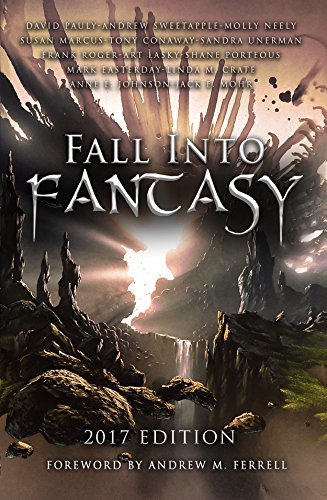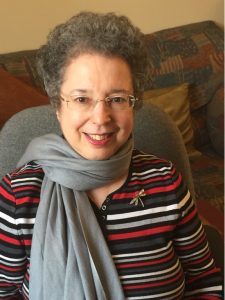What Have Writing Groups Done For Me? Sandra Unerman explains…
How have other writers helped my work?
My novel, Spellhaven, has just been published by Mirror World Publishing, to my great excitement. The story is full of things I’ve wanted to write about for ages, including an island city ruled by magicians, a place where life revolves round all kinds of theatrical shows and a young woman who refuses to accept the plans other people make for her. But the novel didn’t reach publishable form just through my solitary efforts to work out my inspirations. It has been influenced in different ways by the encouragement and feedback I have received from other writers in various writing groups as well as from the tutors on my MA course in Creative Writing.
The first seeds of Spellhaven came from a couple of short stories I took to Milford years ago. For those who are not familiar with it, Milford is a weeklong residential writing workshop, held once a year in the UK (following a model from the USA). 12 to 15 writers bring along two or three pieces of work for critiquing and we all sit round in a circle, taking it in turns to comment or receive feedback. I was pretty apprehensive, the first time I went. I wasn’t sure whether in-depth analysis of my work by other writers would finish off my creative impulses altogether. And I didn’t know if I’d be able to make a worthwhile contribution in my comments on their work. In fact, I found the whole experience intense but thoroughly enjoyable and stimulating. Comments on my pre-Spellhaven stories showed me that I hadn’t yet succeeded in getting across the vision inside my head but gave me some useful hints about the way forward.
When I retired from my full-time job in 2010, I decided to embark on an MA in Creative Writing at Middlesex University, specialising in SF and fantasy. One reason was that I wanted more regular contact with other writers who shared my interests. The course also gave me a chance to study in some depth topics such as narrative and voice. The novel writing module provided the impulse to write the first draft of Spellhaven in its present form, since we were asked to produce a complete draft of a novel in three months, starting from scratch. I can’t recommend that particular course, because it’s no longer on offer, but I certainly found the whole experience worthwhile. The feedback I received from the tutor and fellow students spurred me to carry on further work on the novel and to send it out to publishers and agents.
I now belong to 3 regular writing groups, which all have their influence on my current work. Two are critiquing groups, like Milford. One is online, one of the Orbit groups of the British Science Fiction Association. The other is a small local group, Middleoak, which meets face-to-face. This was initially formed from some of the people on my Middlesex course, who wanted to keep in contact, although we do now have members who have not been through that experience. I have submitted a number of short stories to these groups, which have later gone on to find a publisher. These include, most recently, Every Midnight, in the June issue of Swords and Sorcery online, and Gammer Lobstone, in an anthology, Fall into Fantasy, due out in September. And sections of my follow-up novel, Ghosts and Exiles, which is due to be published in 2018, were also critiqued by Middleoak.

My third group, Clockhouse London Writers, operates on rather different principles. This group, led by Allen Ashley, also meets once a month, to discuss market opportunities and ideas for genre fiction. We have a go at writing on the spot on a set theme, either individually or in collaboration, and share the results. The Clockhouse meetings have got me started on a number of stories, which I might otherwise never have written.
On the basis of my experience, I would recommend joining a group to anyone who has the impulse to share their writing with other people. But I think there are a few qualifications necessary to make for a successful group. First, it helps if people are engaged in the same field, in the broadest sense. I’ve found that writers of fantasy, SF and other kinds of speculative fiction can usually understand enough about each other’s work to give useful feedback, even if their styles are very different. But writers who like to keep to the strictly realistic (as they see it) may not be much help.
Secondly, remember that you’re trying to enable each person to develop their own creative vision, not rewrite for them or demonstrate your own powers of criticism. I think it probably helps if you enjoy trying to understand what someone else is trying to achieve. That way, you can give your own reactions as a reader but at the same time, help them think through how they can move forward. I’ve found some of the most helpful criticism has been the kind that makes me see the gap between what I’ve put on the page and what was in my mind’s eye. Sometimes, something about a character or a setting has seemed so obvious to me that I’ve forgotten to write it down.
At its most basic, it helps to have other people to talk to about how the work is going, as well as recommendations for books to read and general gossip. These days, there are more forums for that sort of activity than there used to be, including blogs like this, for example. But regular meetings (face to face or online) can build a stronger network in a way I’ve certainly found very worthwhile.

Sandra Unerman lives in London in the UK. When she retired from a career as a Government lawyer, she undertook an MA in Creative Writing at Middlesex University, specialising in SF and fantasy, and graduated in 2013. Since then, she has had a number of short stories published. She writes reviews and articles for the British Science Fiction Association and the British Fantasy Society. She is a member of London Clockhouse writers and other writing groups. Her interests include history, folklore and medieval literature.
Please Feel Free to Share:










